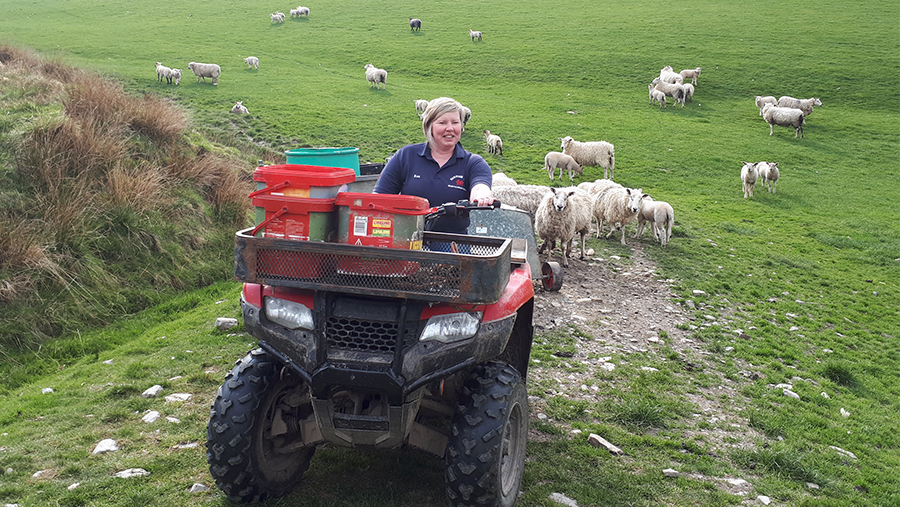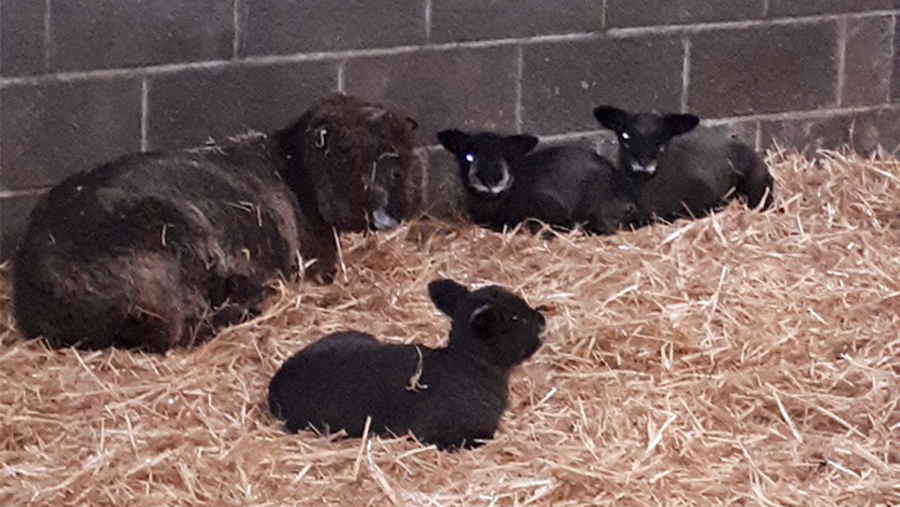Advertiser content
Combining accountancy and hill sheep farming in Wales
Provided by
Our highly experienced team of accounting and finance experts advise thousands of farmers every day and many of the team are from farming backgrounds so understand the challenges that come with running a farm.
We are unique in the farming industry with local offices and local people, which means we are part of the community, your community, we understand local situations and have local contacts, supported by a national network of offices across the UK.
In addition to core accounting we offer specialist advice in obtaining or restructuring finance, inheritance tax planning, diversification, insurance, agricultural property relief, maximising tax reliefs and reviewing business structures, with a client led service offering bespoke solutions to local rural businesses.
For more information about Azets Rural and Farming Team visit www.azets.co.uk

Meet Karen Gittins, a partner at our Welshpool office she talks about life as an accountant and hill sheep farmer.
How long have you been farming?
I have been part of the farming community all my life, I grew up on the farm, active with YFC from a young age and treasurer of the local show.
Being the eldest of two girls I have flexible holidays and for as long as I can remember ‘holidays’ are lambing, shearing and getting sheep ready for livestock sales in September/October.
Up until 2017, I have always been active on the family farm with lambing, after the busiest period of January for accountants I love spending March in the lambing shed.
In 2017 my parents reduced their lambing flock and now retain 700 ewe lambs to run on to yearlings, along with 100 head of fattening cattle so I am kept busy at other times of the year.
As they are not ready to retire or ‘hand over the reigns’ when my partner and I had the opportunity to take on 200 hectares and purchase 440 in lamb ewes – we took it .
I have always wanted to be more involved in the decisions and this was a joint venture for us to run alongside my partners existing farming enterprise.
What took you into accountancy?
I fell into accountancy and love it! Every piece of work is different; no job is the same. I left the sixth form to start a degree in journalism and quickly realised it wasn’t for me, I returned home and found a temporary job as a junior in a local accountancy firm.
Unfortunately, they didn’t support training, so I did the first year during the evenings before moving to Turner Peachey in 1999 (we became part of Baldwins in 2014) where I finished my training and became a partner in 2008.
What is your farm set-up, location, size, type?
Located in the Cambrian mountains, we have two separate units which are approximately six miles apart.
Consisting of 200 hectares of non-organic with 450 ewes, a mixture of mules and improved welsh, these lamb in February indoors. Then we have 220 hectares of organic (we are in year 2 of Organic conversion) traditional welsh hill farming.
Here we have 400 hardy welsh ewes, which lamb in April outdoors. Then there are the ‘favourites’ our 15 Pedigree coloured Ryelands, some of which we show. It is a great way to meet people and very sociable. I’ve never met a farmer who doesn’t like a chat.
What is the farm history, is it a new venture, is it a family farm?
My parents own the family farm and the organic unit is a tenancy with the RSPB The non-organic is initially a two-year tenancy which started in November 2017 with the opportunity for longer.
We sat for hours, projecting cash flows, forecasts etc for the new venture we commenced in November 2017- me using my laptop with all singing and dancing formulas.
My partner using pen and envelope – surprisingly our figures were very similar!
But what a year to start a new business, 440 in lamb ewes when the beast from the east hit – to say it was hard was an understatement.
The new unit is six miles away from the farmhouse, we have to travel by quadbike, as the 4 by 4 could not get there.

Losses were substantial, both ewes and newborn lambs, cash flows, forecasts and predictions all went out of the window within a three-week period – weather can play such a crucial part to the agricultural sector.
Describe how business has been for you over the past 12 months? Have there been any emerging growth trends, or barriers to growth?
Yes, barriers to growth – money! Once we had got over the beast from the east, our first lambs from the new venture were sold in May 2018 and the prices were good.
The weather has been extremely varied over the past year – with a very wet spring, warm and dry summer.
Has this impacted business compared to previous years? Has the expected feed price increase come through?
Last summer we struggled, water was carried to the sheep for about six weeks. On the upside the quality of fodder that we produced was excellent, although due to water shortage the crop was not the quantity. We have seen the benefit of this during 2019 lambing.
Oh Yes! Feed prices are up as is fertiliser – we have made some changes to diet to reduce feed costs.
What is your opinion on Brexit – do you see it as a good thing or a bad thing, and why?
Let’s just get on with it.
Are there any approaches you have taken to protect your business against any negative impact from Brexit?
Whilst Brexit is in our mind, we are continuing to grow and invest in the new venture as this has more opportunity to diversify.
Only focus on what you can control, we look to improve our efficiency and costs so our business will be stronger to face whatever the future may hold.
I think it is crucial not to have all your eggs in one basket, milk, beef, lamb, chicken etc. – each sector has its ups and downs, by diversifying you can spread the risk.
Although for some farms, due to location there really is no opportunity to diversify from their existing income streams. Long term I believe we will need to grow and produce more of our own food.
In your opinion, which areas does the agricultural industry need support in over the coming months?
MTD will be a huge change for agriculture, I believe in a positive way to provide up to date key information which is vital to make decisions.
Farming can no longer be a ‘way of life’ difficult decisions may need to be made and in farming the benefits of the decision may be some time in the future.
Lastly, is it a positive or negative outlook for the agricultural industry right now – what’s your view? Positive, it can’t be anything else.
